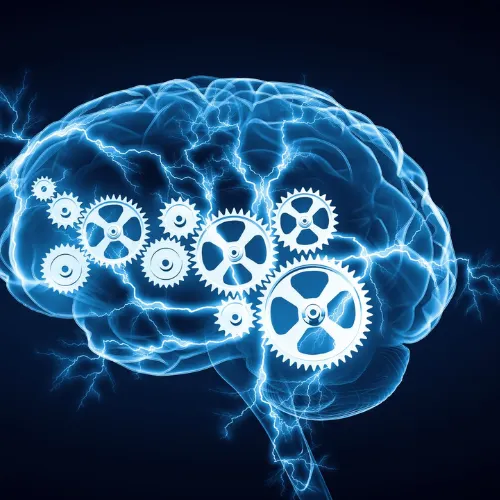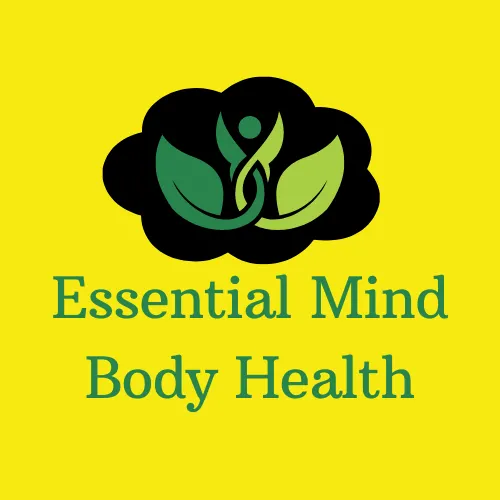
Unlock the Secret to Better Brain Health: Ten Steps to Improve Memory and Cognitive Function
Have you ever experienced that frustrating moment when you walk into a room and forget why you're there? Or perhaps you frequently misplace your car keys or have difficulty remembering the name of someone you just met? These instances of cognitive decline, often referred to as brain fog or forgetfulness, are common among adults and tend to worsen as we age. However, the good news is that it doesn't have to be this way. You actually have more control over the health and function of your brain than you may realize.
The Connection Between Diet and Brain Health
Improving memory and brain health is achievable with some simple steps that you can start implementing today. One key factor is the connection between our diet and brain health. Nutrition plays a pivotal role in cognitive function, and certain dietary choices can have a profound impact on how our brain ages.
1 - Reducing Inflammation
Chronic inflammation is a silent killer when it comes to brain health. It has been linked to a host of cognitive issues, including memory loss and dementia. Incorporating anti-inflammatory foods into your diet can help protect your brain. Foods rich in omega-3 fatty acids, such as flaxseeds, walnuts, and salmon, are excellent choices. These healthy fats are known to reduce inflammation and support brain function.
Turmeric, with its active ingredient curcumin, is another powerful anti-inflammatory food. Adding turmeric to your meals can provide brain-boosting benefits. Additionally, fruits and vegetables high in antioxidants, like leafy greens, cruciferous vegetables, and berries, help combat oxidative stress and inflammation in the brain.
2 - The Gut-Brain Connection
Another strategy for improving brain health is to focus on gut health. The gut-brain connection plays an important role in cognitive function. A healthy gut can positively impact your brain health, while an unhealthy gut can contribute to cognitive decline.
Probiotics and prebiotics are essential for maintaining a healthy gut microbiome. Probiotics are beneficial bacteria found in fermented foods like yogurt, kefir, sauerkraut, and kimchi. Prebiotics, on the other hand, are types of fiber that feed the good bacteria in your gut. Foods rich in prebiotics include bananas, garlic, onions, and whole grains. By taking care of your gut through a balanced diet and these gut-friendly foods, you can support your cognitive function and overall brain health.
3 - Incorporating Nootropics
Consider incorporating nootropics, which are substances that can enhance cognitive function, into your routine. Nootropics like caffeine, omega-3 fatty acids, and certain herbal supplements have been shown to support brain health and improve memory.
4 - Omega-3 Fatty Acids
Omega-3 fatty acids, particularly DHA, are crucial for brain health. They support the structure of brain cells and have been shown to improve cognitive function. Consuming fish oil supplements or eating fatty fish like salmon and mackerel can provide these essential nutrients.
5 - Caffeine
Caffeine, found in coffee and tea, is a well-known nootropic. It works by blocking adenosine, a neurotransmitter that makes you feel tired, thereby increasing alertness and concentration. However, moderation is key, as too much caffeine can lead to jitters and anxiety.
6 - Herbal Supplements
Herbal supplements such as ginkgo biloba, ginseng, and Rhodiola rosea have also been studied for their cognitive-enhancing properties. Ginkgo biloba is commonly believed to improve blood flow to the brain, ginseng is known for its ability to reduce stress and improve mental clarity, and Rhodiola rosea can help combat fatigue and boost overall cognitive function.
7 - The Importance of Sleep
Lastly, getting an adequate amount of sleep is essential for brain health. Sleep allows the brain to recharge and consolidate memories, so prioritizing quality sleep can help prevent cognitive decline. Adults should aim for 7-9 hours of sleep per night. Establishing a regular sleep schedule, creating a relaxing bedtime routine, and ensuring your sleep environment is conducive to rest are all important steps to achieve better sleep.
8 - Exercise and Brain Health
Physical activity is another critical component of brain health. Regular exercise increases blood flow to the brain and promotes the growth of new neurons. Activities like aerobic exercise, strength training, and even yoga can improve cognitive function and reduce the risk of cognitive decline. Aim for at least 150 minutes of moderate-intensity exercise per week to reap the brain-boosting benefits.
9 - Mental Stimulation
Keeping your brain active and engaged is vital for maintaining cognitive health. Mental stimulation can come from a variety of activities, such as reading, puzzles, learning a new skill, or playing musical instruments. These activities challenge your brain and help build new neural connections, which can enhance cognitive function and delay the onset of age-related decline.
10 - Social Connections
Maintaining strong social connections is also beneficial for brain health. Engaging in social activities, whether it's spending time with family and friends, joining clubs, or participating in community events, can provide emotional support and mental stimulation. Social interaction has been linked to a lower risk of dementia and improved overall cognitive function.
Conclusion
By following these key tips to prevent cognitive decline and improve brain health, you can take control of your cognitive function and maintain sharpness as you age. Remember, it's never too late to start prioritizing your brain health. Incorporate a balanced diet rich in anti-inflammatory foods, support your gut health, consider adding nootropics to your routine, prioritize sleep, engage in regular physical activity, stimulate your mind, and nurture social connections. These steps can collectively contribute to a healthier, more resilient brain, helping you stay mentally sharp and vibrant throughout your life.
